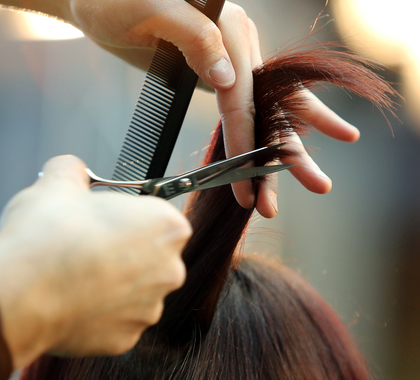As I was getting my hair cut the other day, I struck up a conversation with the beautician, who told me about being certified as a “Paul Mitchell Master Stylist.” Paul Mitchell is a network of beauty schools and salons that trains stylists. To become a “master stylist,” a salon employee must provide a certain dollar amount of services in a month, which proves he or she has reached a high level of competency and has built up a clientele.
The conversation got me thinking, as I often have, about how naturally and effectively many parts of the private sector set standards – as well as how government, particularly when it comes to education, stinks at it.
Think about all the things you spend money on in life. Why do you pick one product or service provider over another? Is it because government told you to? Unless there’s a tax incentive, probably not. But in the case of education, we are often told one school is better than another by government, which sets its own historically horrendous standards by which to judge its own schools. What an absurdly flawed system!
The Market Helps Consumers Choose
I didn’t choose the salon I went to because it’s Paul Mitchell certified (though I had heard of the brand), but I would be inclined, after having a satisfactory experience there, to choose another Paul Mitchell salon in the future over a non-affiliated salon, if I had a choice. That’s how the free market works.
Many people swear by AAA-approved auto repair shops and will only have their cars serviced at facilities the American Automobile Association labels “high quality.” Similarly, while growing up, I went on a lot of road trips with my family. We stayed at numerous campgrounds and learned that when we saw the “Good Sam” seal of approval, the campground would be top-notch.
People who become personal trainers have loads of options as to what type of certification they earn, and some are recognized to be more highly rated and well-regarded than others, meaning you’ll be more likely to land a better-paying job. It’s the same with college. Everyone used to know if you attended an Ivy League school (the reputation is becoming less accurate all the time), you were likely smart, well-educated, and capable of a high-level career.
Yelp!, Angie’s List, Michelin stars, and product reviews on Amazon all do the same thing. They inform us which products and services are the best. I could go on listing hundreds of examples of ways in which people trust the free market to make informed decisions about economic choices every day. When it comes to education, though, few have a choice, and the “choices” government makes for us are often based on, as I noted before, sub-par (that’s being polite) standards they invent.
High-Stakes Standards
As The Washington Post’s Valerie Strauss wrote in 2015,
High-stakes standardized testing has become a hallmark of modern school reform for well over a dozen years, starting with the use of these exams in the 2002 No Child Left Behind law to hold schools “accountable.” The stakes for these exams were increased with President Obama’s $4.3 billion Race to the Top funding competition, in which states could win federal education funding by promising to undertake specific reforms – including evaluating teachers by test scores and adopting “common standards.”
Ah yes, “common standards.” The most recent set of common standards has proven to be – like most things government oversees – an epic disaster. The Common Core State Standards were sold to the states (they were literally bribed to adopt them) as a feel-good/look-good scheme to dupe taxpayers into believing government schools would be held to an ideal. The standards turned out to be awful; all they did was serve as a reminder that, whatever standard government is being held to now, it’s too low.
It’s time our education system was given the same opportunity to earn students.
Every successful business, school, and person (you must do a good job to be recommended) has built a superior reputation on merit, not on a government-approved standards. It’s time our education system was given the same opportunity to earn students, by aspiring to standards families actually care about.
Giving parents a choice in where their children are educated would guarantee schools are held to a high, parent-set standard, as opposed to the low bar public schools aspire to now, and it would dramatically improve the system for everyone across the board.





